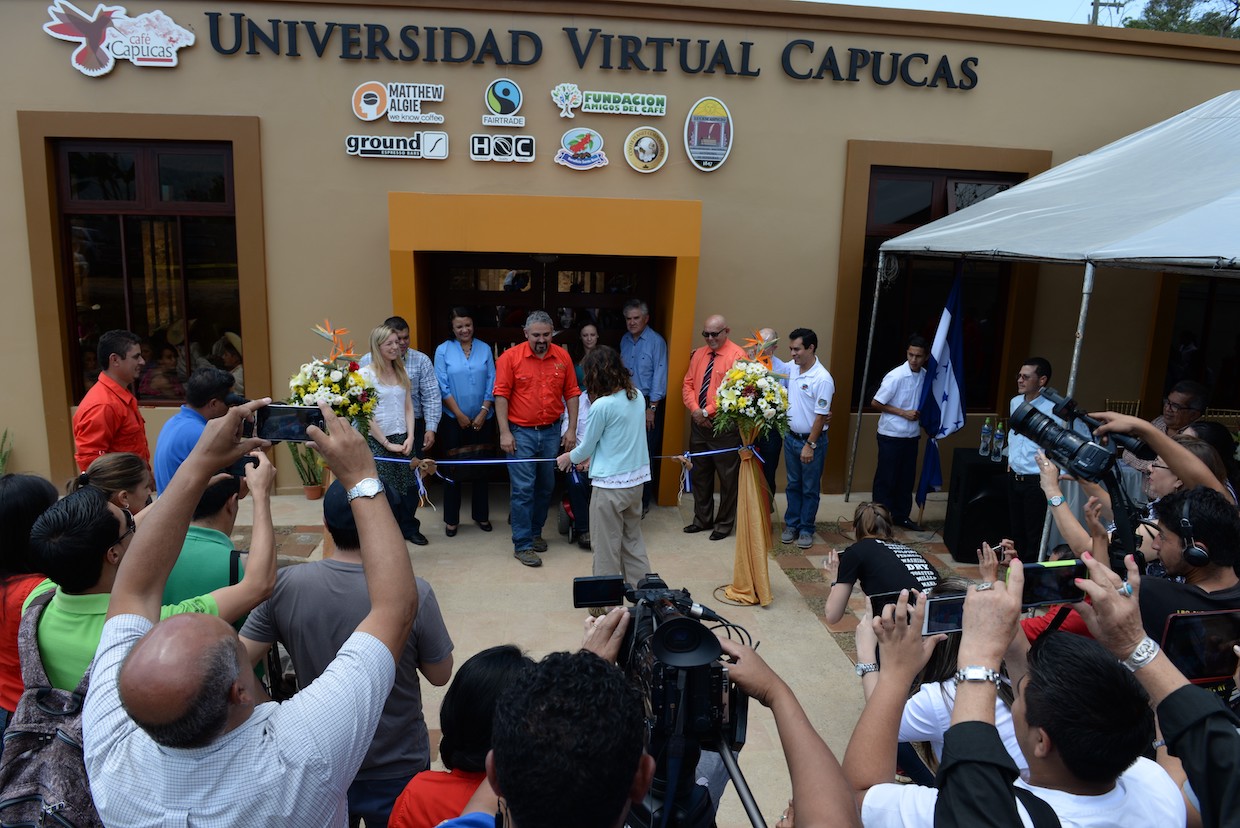Through a partnership with the farmer-focused civil society organization Solidaridad Network, Scottish coffee roasting company Matthew Algie is launching a decarbonization pilot project focused on Honduras.
The Glasgow-based coffee company — which is currently celebrating its 160th anniversary — said it hopes the two-year project may serve as a model for reducing carbon footprints in other parts of its supply network, as the company seeks to achieve “net zero” by 2040.
Solidaridad designed and proposed the project to Matthew Algie following a request-for-proposals (RFP), according to a spokesperson for the company. The project, which is funded for €50,000 (US$51,490, as of this writing), is in coordination with the Capucas producer group in Copán, Honduras.
The Matthew Algie decarbonization initiative expands Solidaridad’s ongoing work in the Honduras coffee sector.
Not directly tied to the European Union’s new deforestation-free supply chain law, known as EUDR, the pilot project is generally focused on sustainable farming, carbon footprint measurement and social improvements, such as gender equality.
The company said that supply chain emissions account for more than 90% of its existing carbon footprint, which makes its “net zero” ambitions inherently challenging.
The pilot project has already involved data collection from 100 producers, offering a clearer picture of where emissions originate locally. Trainings have also been conducted with 45 technical staff and producers, covering climate-change strategies and carbon footprinting.
“Working with our suppliers to accurately measure our supply chain carbon emissions is a key first step in this journey because it will allow us, and them, to move away from estimates and get a better idea of the emissions hotspots that need to be addressed,” Matthew Algie Sustainability Manager Amy Oroko said in an announcement of the project. “Helping our suppliers become more sustainable is one of the top priorities on our sustainability agenda, but we haven’t yet had the data to analyze what steps will be effective in delivering it. We are still in the early stages, but our findings so far are encouraging.”
Comments? Questions? News to share? Contact DCN’s editors here. For all the latest coffee industry news, subscribe to the DCN newsletter.








Comment